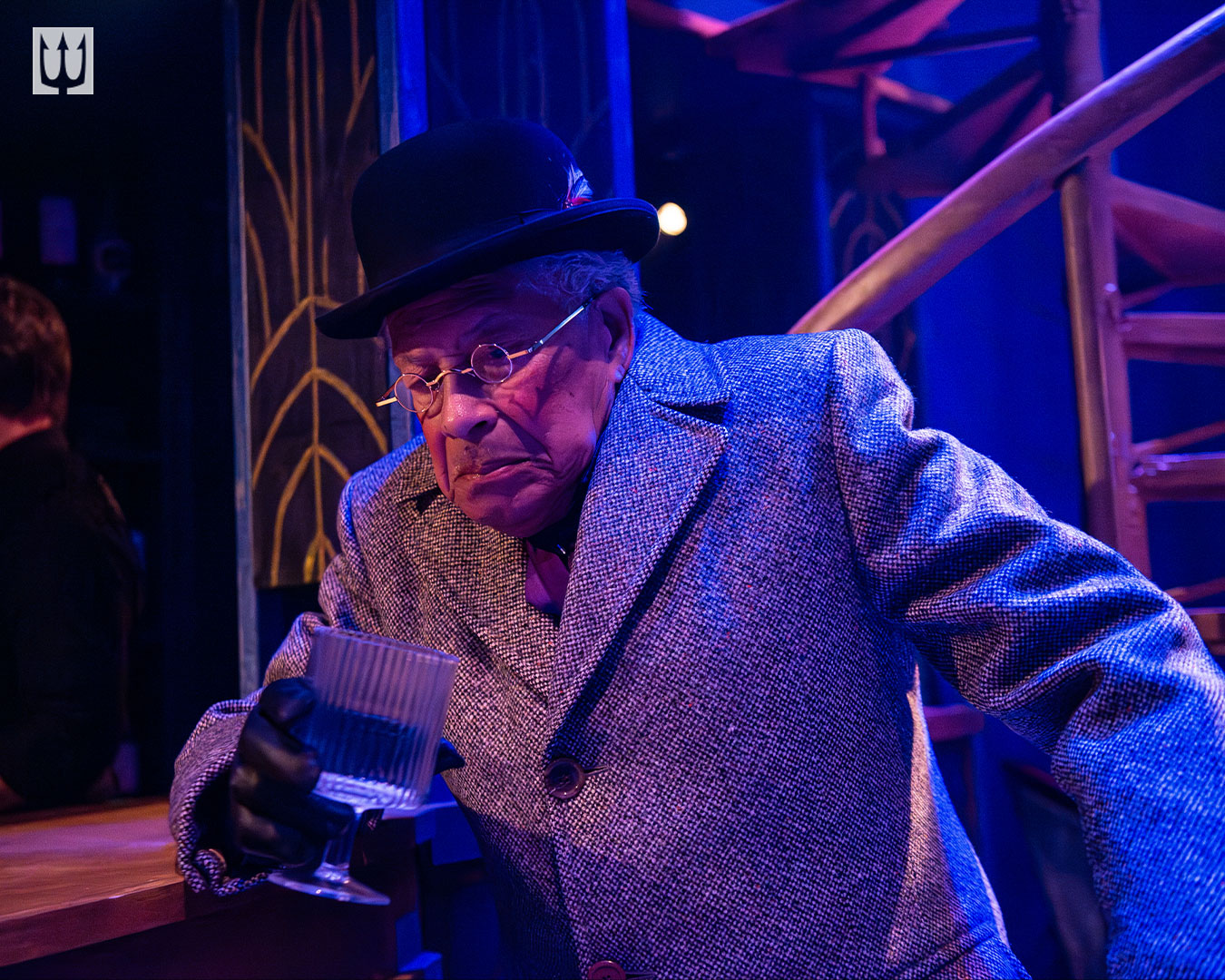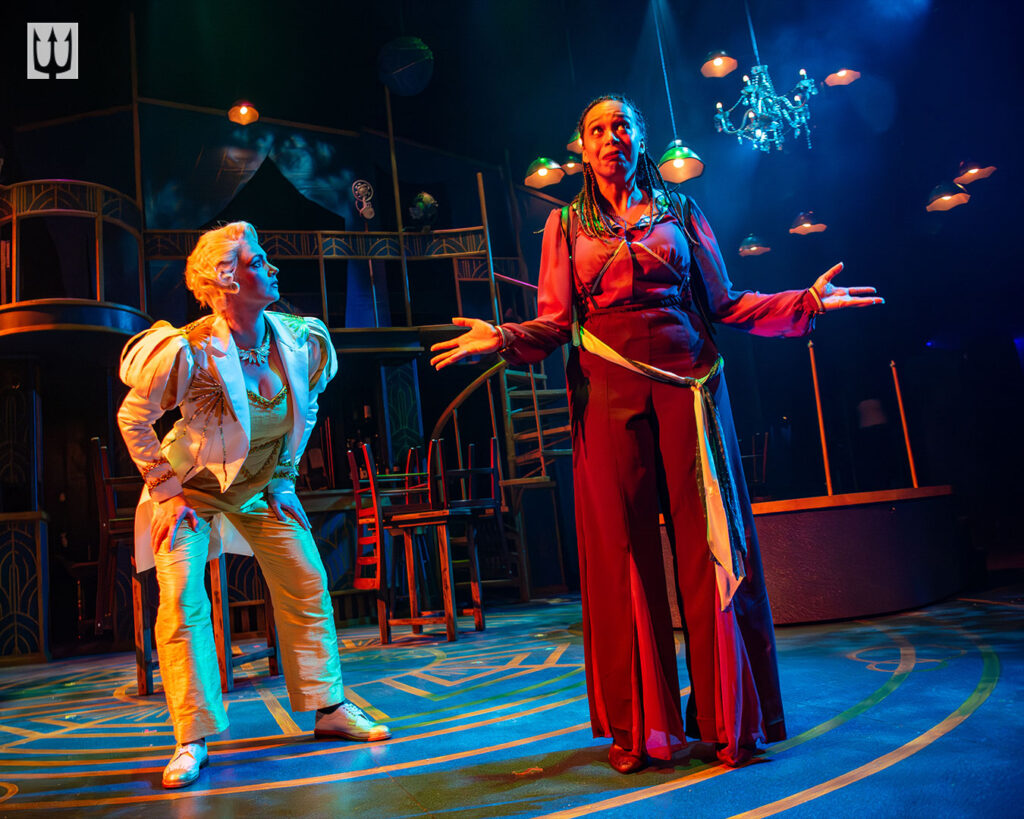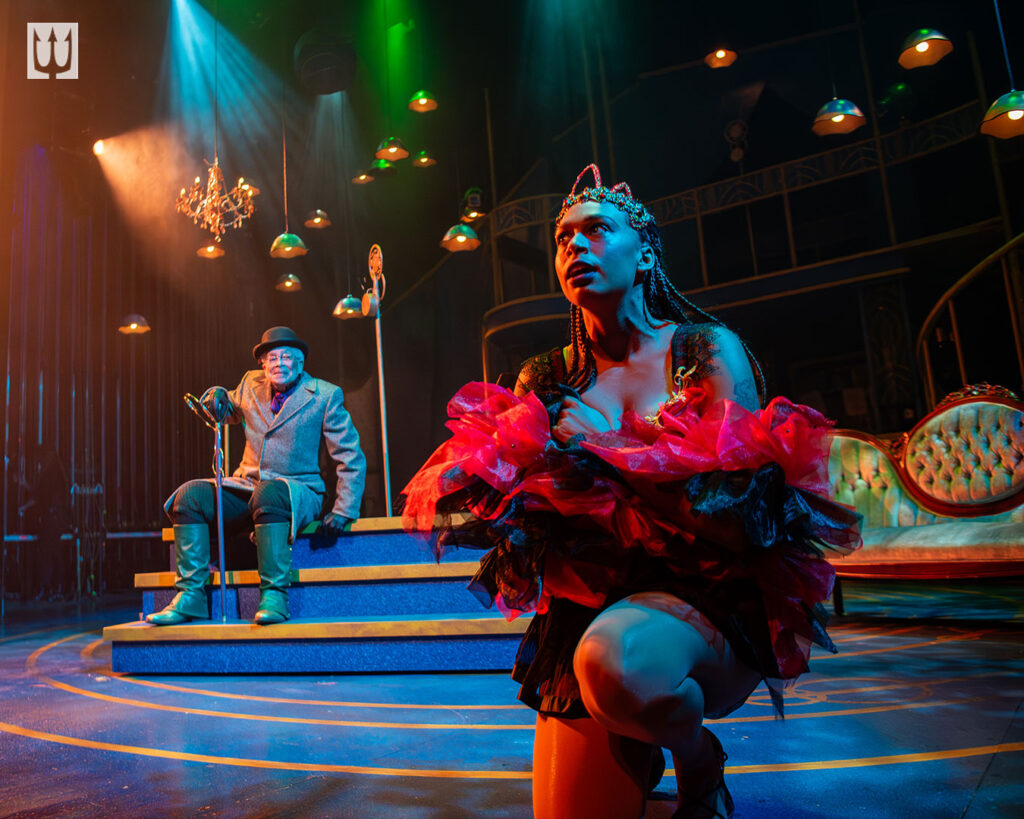
Walter Borden Photo by Stoo Metz
When Walter Borden received a telephone call from Neptune Theatre’s Artistic Director Jeremy Webb asking him if he would play Puck in William Shakespeare’s A Midsummer Night’s Dream Borden initially laughed.
He had been in two previous productions of the play: once in Nova Scotia “years and years ago” when he played Bottom, and then in Toronto in 2002 when he played Oberon in Canadian Stage’s Dream in High Park directed by Richard Greenblatt. But when Webb told Borden the conceit of this Dream Borden said, “Okay. Why not?”
And here we are with A Midsummer Night’s Dream, which plays just until October 5th, 2024 at Neptune’s Fountain Hall stage, with one of our most illustrious actors Order of Canada recipient Walter Borden playing Oberon’s faerie minion Puck.
“It’s just very strange to me,” says Borden, “because usually in plays, definitely in Shakespearean plays, what you do is you start out in a certain role, if you’re lucky you might start out with a supporting role… but usually it’s a very supporting role, a walk on, and then you come back to it a few years later and you’re elevated, and then, if you’re really lucky, you end up with one of the major characters in the play. This is the total reversal for me. To go from Bottom to Oberon, Oberon is the faerie King, and then to do Puck is to go right back, because usually you start out as Puck and work your way up. So it’s been very, very, very interesting. Very, very interesting.”
Two of the actors performing alongside Borden in this production are performing in their very first professional Shakespeare play. Kih Becke, no stranger to the classics, gave a formidable performance as Antigone at Ross Creek in 2023; they plays Helena, Snout (one of the mechanicals), and a faerie here. Sophie Wilcott, a very recent Fountain School graduate, who established themself as a consummate comedic actor in 7 Stories there in 2022, plays Hermia, Snug (one of the mechanicals) and a faerie.

Becke performed in Twelfth Night at theatre school but says, “other than reading it out loud and doing my best in Grade 9 English to learn about Shakespeare, this is my first real experience with A Midsummer Night’s Dream. It’s one of my favourite shows. I’d read it a couple times before I got here, and I use one of Helena’s monologues as an audition piece, so it’s very exciting to do [the monologue] onstage.” They say that it’s been interesting to see the monologue differently within the context of the concept of this particular production, but also seeing what aspects from their own work on it that continue to carry over to the way they bring Helena to life.
For Wilcott playing Hermia is a literal dream come true. “I had hoped and dreamed, but couldn’t anticipate seeing myself in a role like this and a theatre like this at this point in my career,” she says, “I am elated to be here. When people asked me, ‘what is your dream role?’ Hermia was always my only answer.” She says that to date the usual “type” that she plays onstage is “obsessed and very sweet,” and that this “lends itself very well to Hermia. She is both of those things. But the great thing about this character is that, as the play progresses, you see kind of an edge come out, and you really see her battling, and she becomes this kind of warrior, and it’s a really exciting arc for me to play.”
Both Becke and Wilcott mention that playing three disparate roles means that there is no time to rest in this breakneck production; when they are not onstage they are quick changing into their next costume. “It’s nice because you don’t get into a lull,” says Becke. “It has the same ‘you can’t let your guard down for one second’ type of energy that I find that Theatre For Young Audiences has,” says Wilcott.
Webb’s concept for the show roots the story in a 1920s speakeasy, which has informed every aspect of the production, from the way the actors think about their characters, to, of course all the various scenic design elements. Becke mentions that the faeries belong more to a Burlesque world, “we’re thinking of the different substances that were accessible at the time,” they say, “and how that could inform our movement, while keeping in Faerieland.” The mechanicals are imagined as the everyday labourers employed at the speakeasy. “As far as the lovers go,” Becke says, “we are pretty close to Commedia Dell’arte lovers. ‘Daddy, I love him!’ Becke says in a heightened voice to demonstrate, ‘Everything is important and now I’m crying!’”
Wilcott mentions the unique role of gender in this production as well, “I see Hermia as a performance of feminity in the same way that a lot of hyper-feminine women present, and I think it’s really kind of a fun way for me to perform peak femininity, and then see how that kind of crumbles within this really kind of strict structured world that [the lovers] live in.”
Borden helps to create this rigid world in his portrayal of Hermia’s father, Egeus. He says, “Egeus represents one of those men from that era who was still really locked into the Old School way, extremely misogynic- the attitude that his daughter, probably his wife too, belonged to him: that was the theme of the day. In making his feelings very known about who he wanted his daughter to marry and how far he would go to have that done is very reminiscent of [the 1920s].”

Conversely, for Puck, Borden roots him ardently into this speakeasy Webb has created. “The club to me is like the Kit Kat Club in Cabaret– not exactly the same era- we are twenty years before, but already moving into that kind of a cabaret, because when you see the Kit Kat Club, that’s at its final decadence. Therefore, Puck is the emcee at this club, and he’s rather like the Emcee in Cabaret, in that vein, and while at the same time representing that netherworld that is necessary for this play, but also the world that existed in those clubs [between the 1920s and the 1940s]. That’s why I was interested in Jeremy’s take on Puck. Puck is always depicted as as sprite, but here Puck is old. He is wisdom. He is 800 years old. He has seen it all, he knows it all, which I find really interesting.”
Being able to perform in this concept of A Midsummer Night’s Dream offers actors in the early years of their careers a sense of freedom and imagination about what roles they might someday play that usually is much more restrictive. “Maybe I will then play Oberon, and then jump back down to Puck one day,” Becke says, “Right?”
The possibilities, for once, seem endless.
Neptune Theatre’s production of A Midsummer Night’s Dream, written by William Shakespeare and directed by Jeremy Webb, plays at Fountain Hall (1593 Argyle Street, Halifax) until October 5th, 2024. Performances are Tuesdays to Sundays at 7:30pm with 2:00pm matinees on Saturdays and Sundays. Tickets range in price from $33.00 to $65.00 based on seating. Tickets are available at this link, by calling the Box Office at 902.429.7070 or in person at 1593 Argyle Street. When you book your tickets you may be asked if you would like to purchase additional access to Shadows: the A Midsummer Night’s Dream Pre-show, which will take you to a top-secret speakeasy within Neptune Theatre an hour before the 7:30pm show for a special performance. Tickets for this event are extremely limited and going fast! You will be be prompted to add this show to your ticket on the website once you have booked your seats- or ask about it at the Box Office!
Please note: this show is recommended for ages 14+
A Midsummer Night’s Dream is set in the 1920’s during Prohibition and contains suggested use of alcohol, some sexual innuendo, kissing and suggested sex.
Neptune Theatre is fully accessible for wheelchair users. For more Accessibility Information Click Here.



 World Theatre Day: My God Is It Ever The Time to Invest in Canadian Plays
World Theatre Day: My God Is It Ever The Time to Invest in Canadian Plays 

